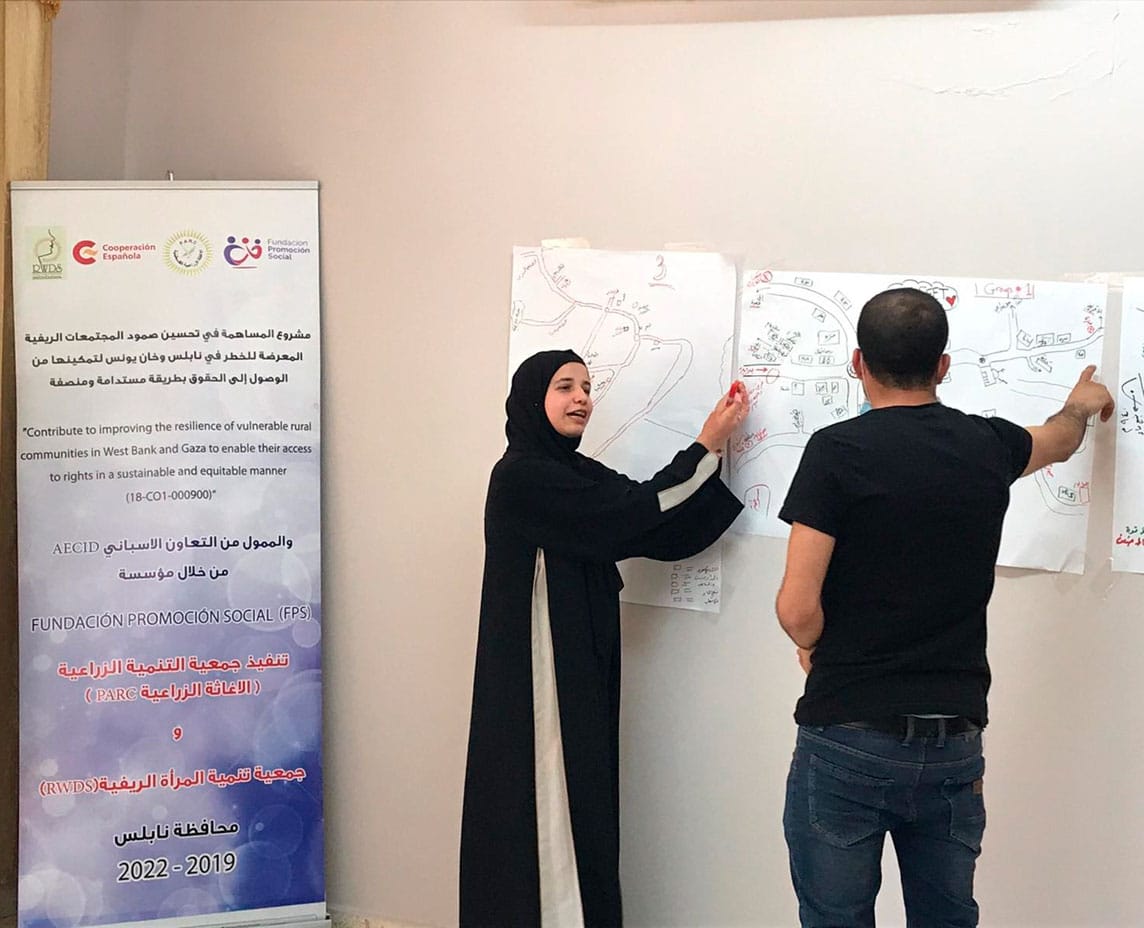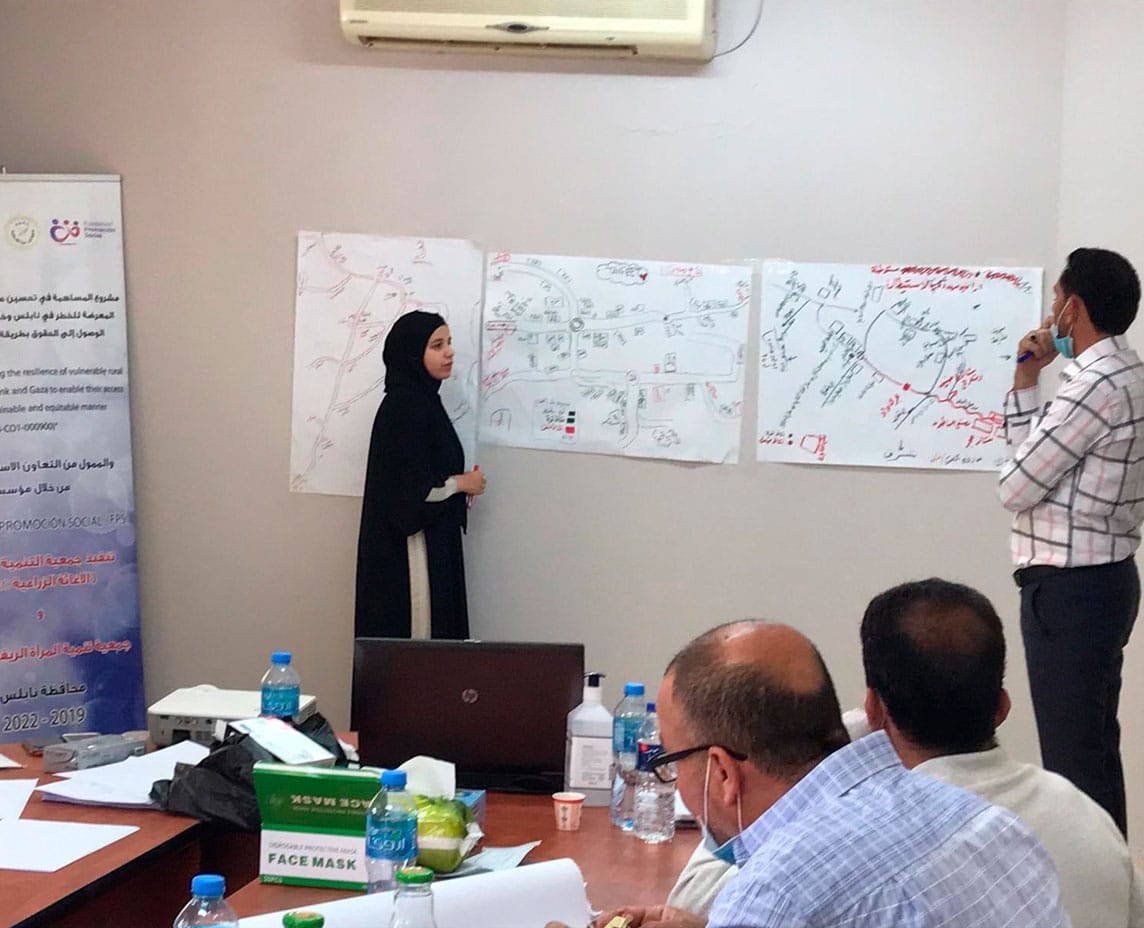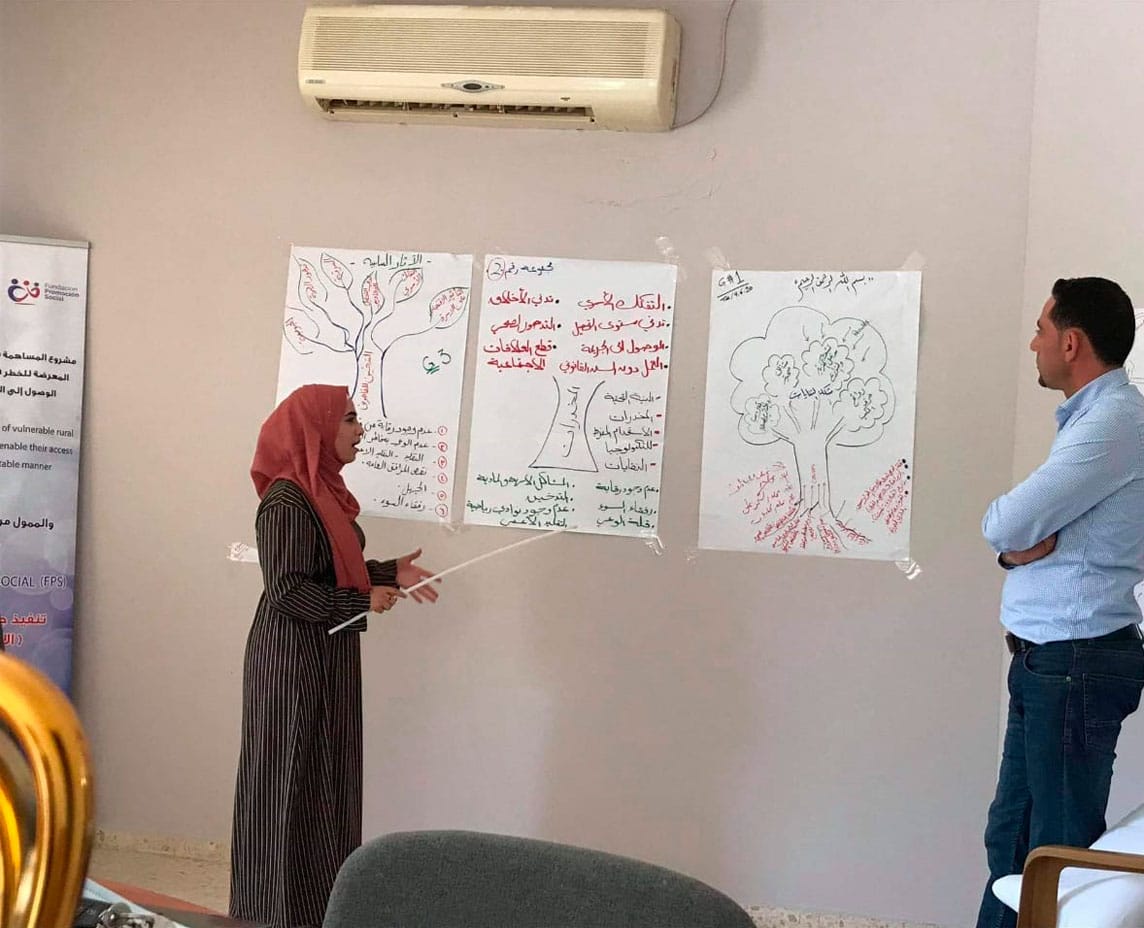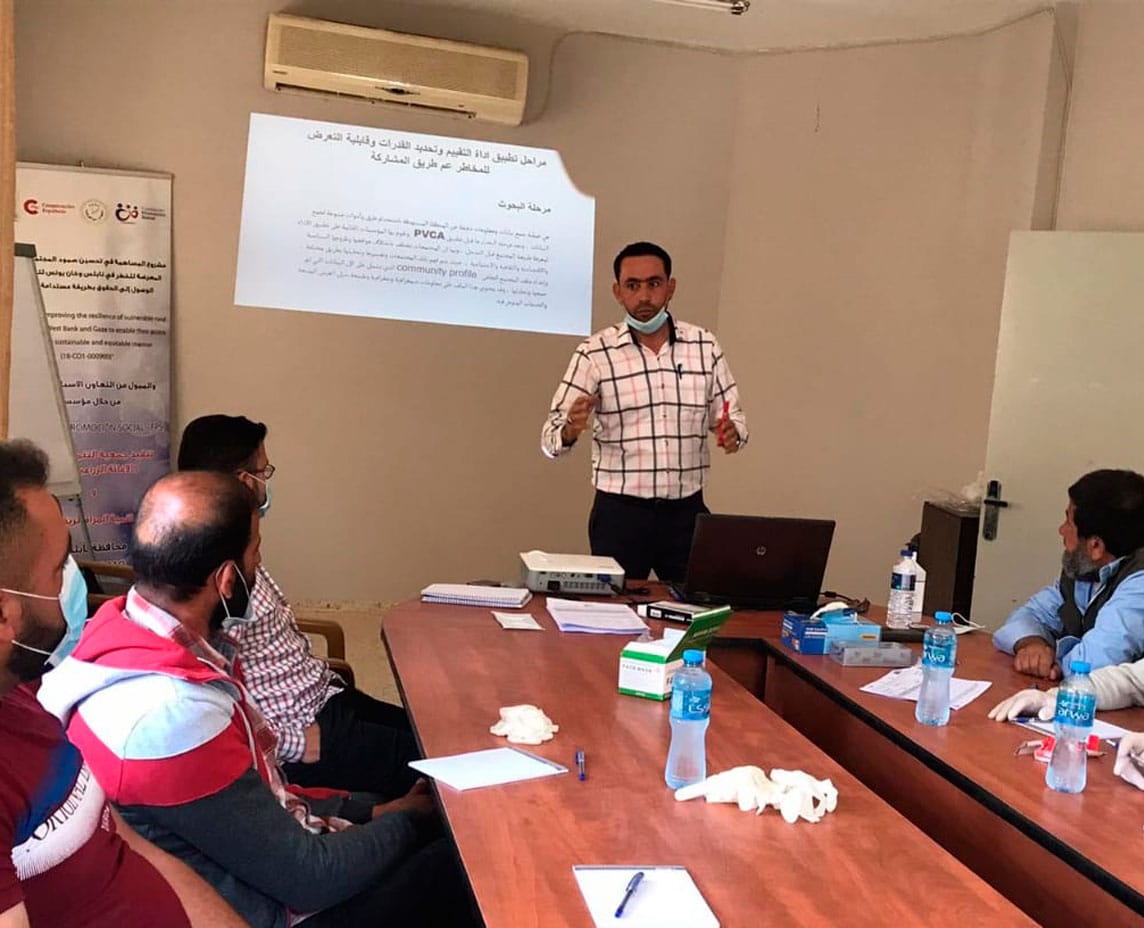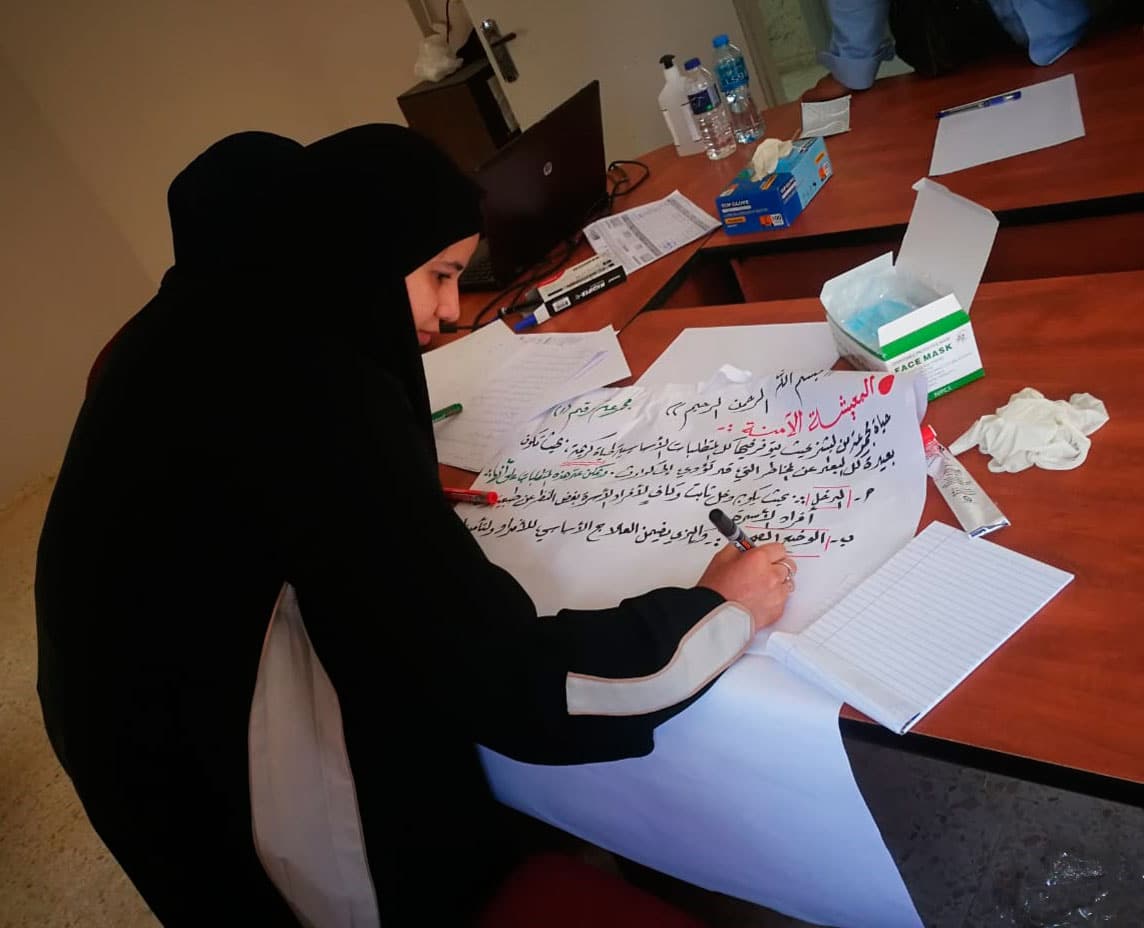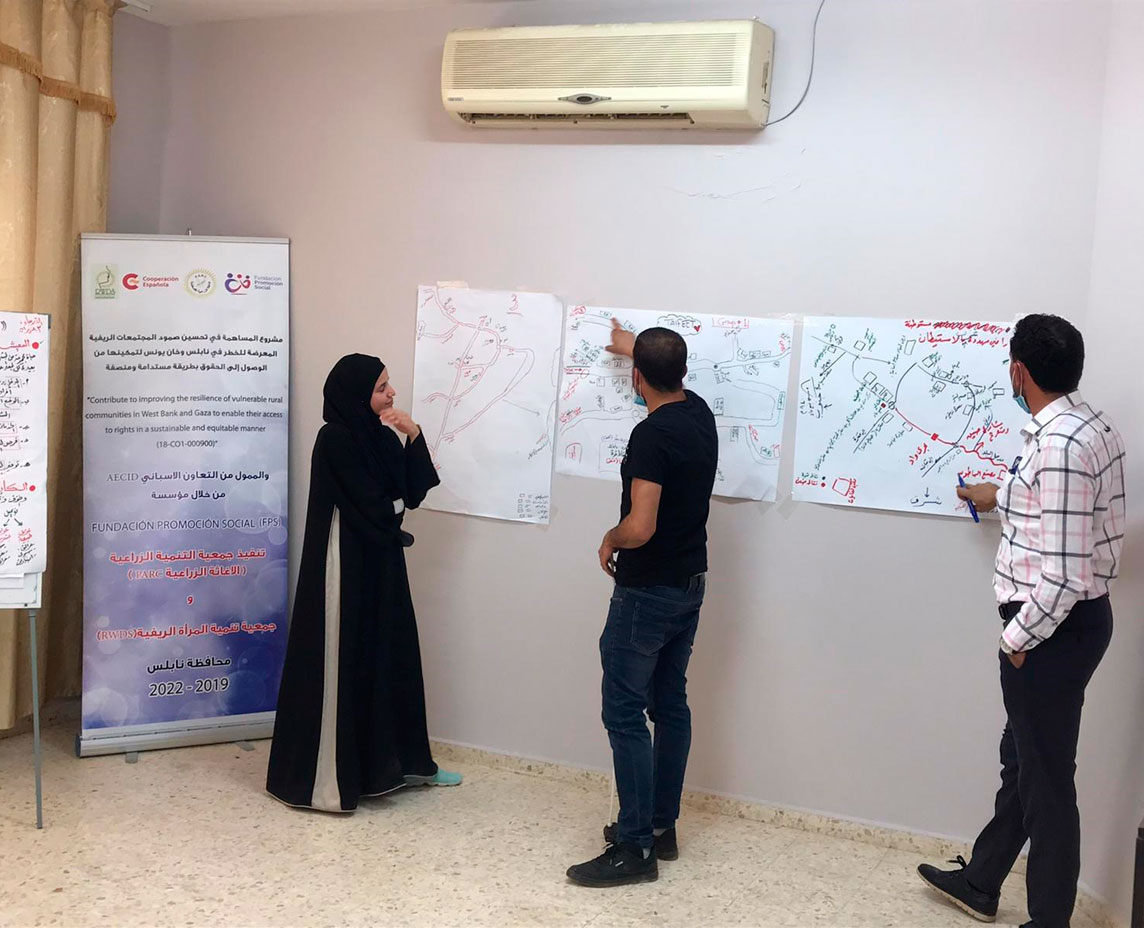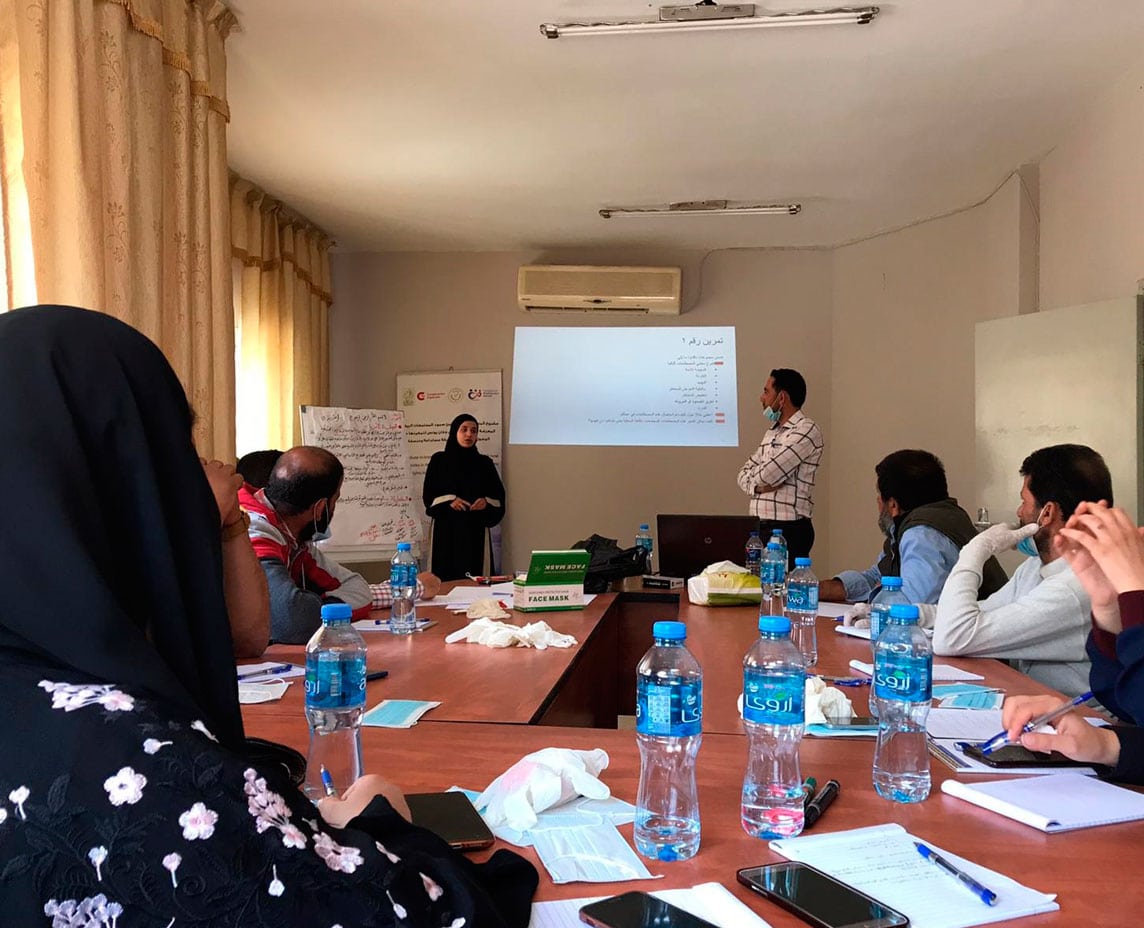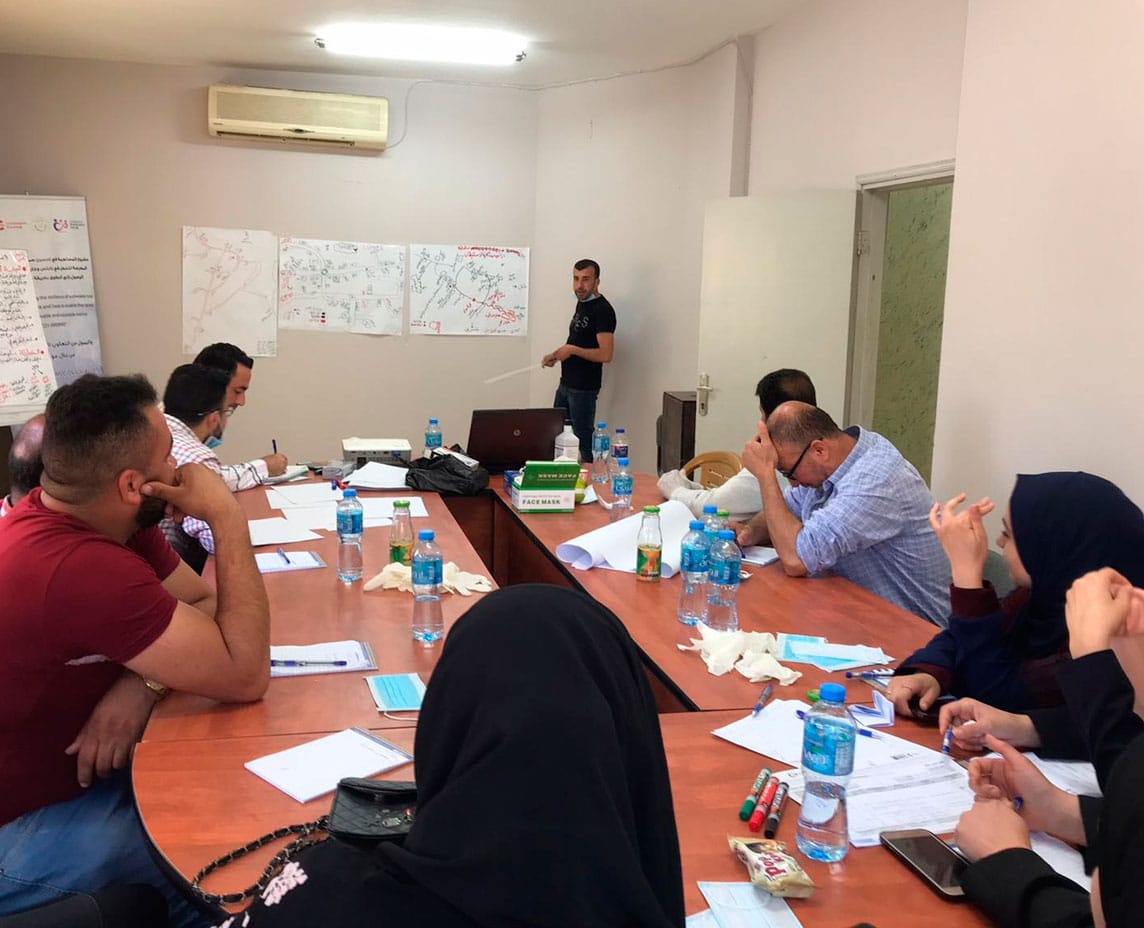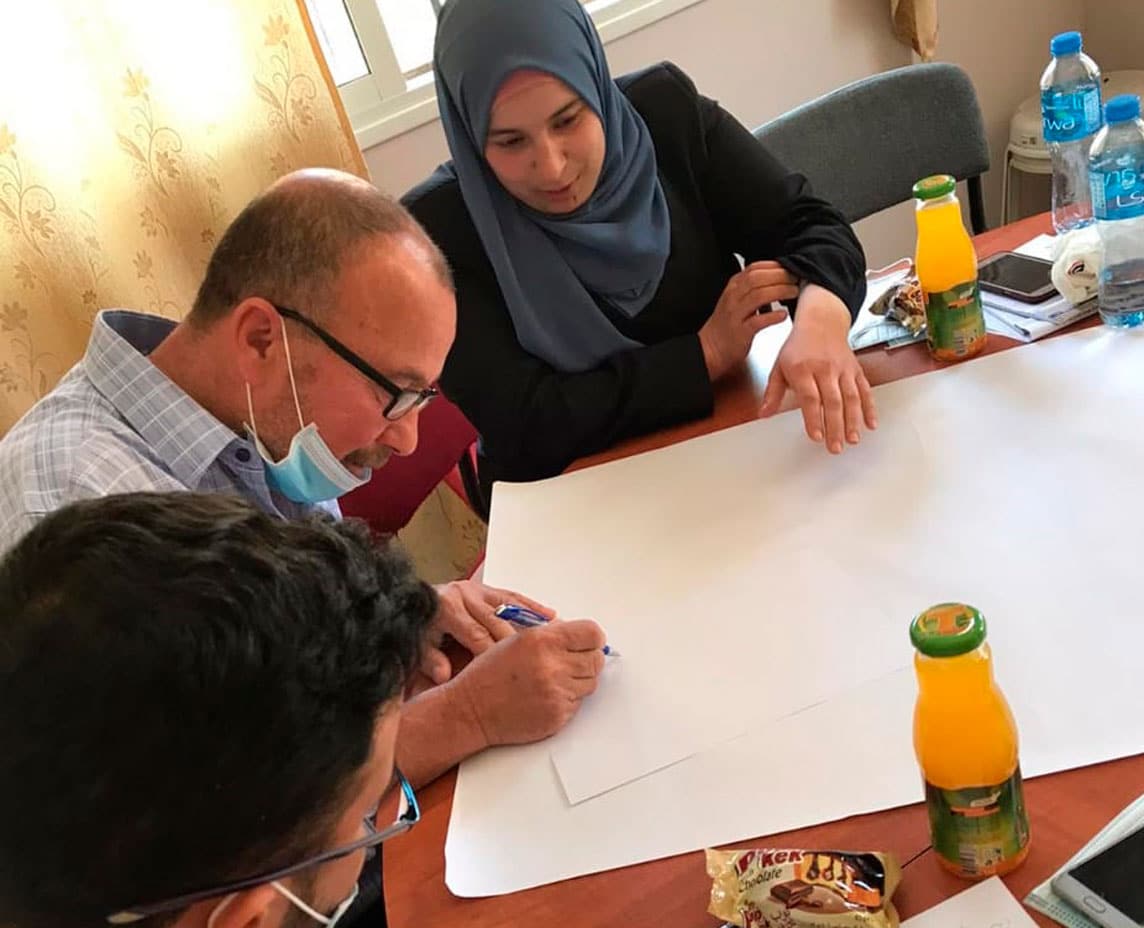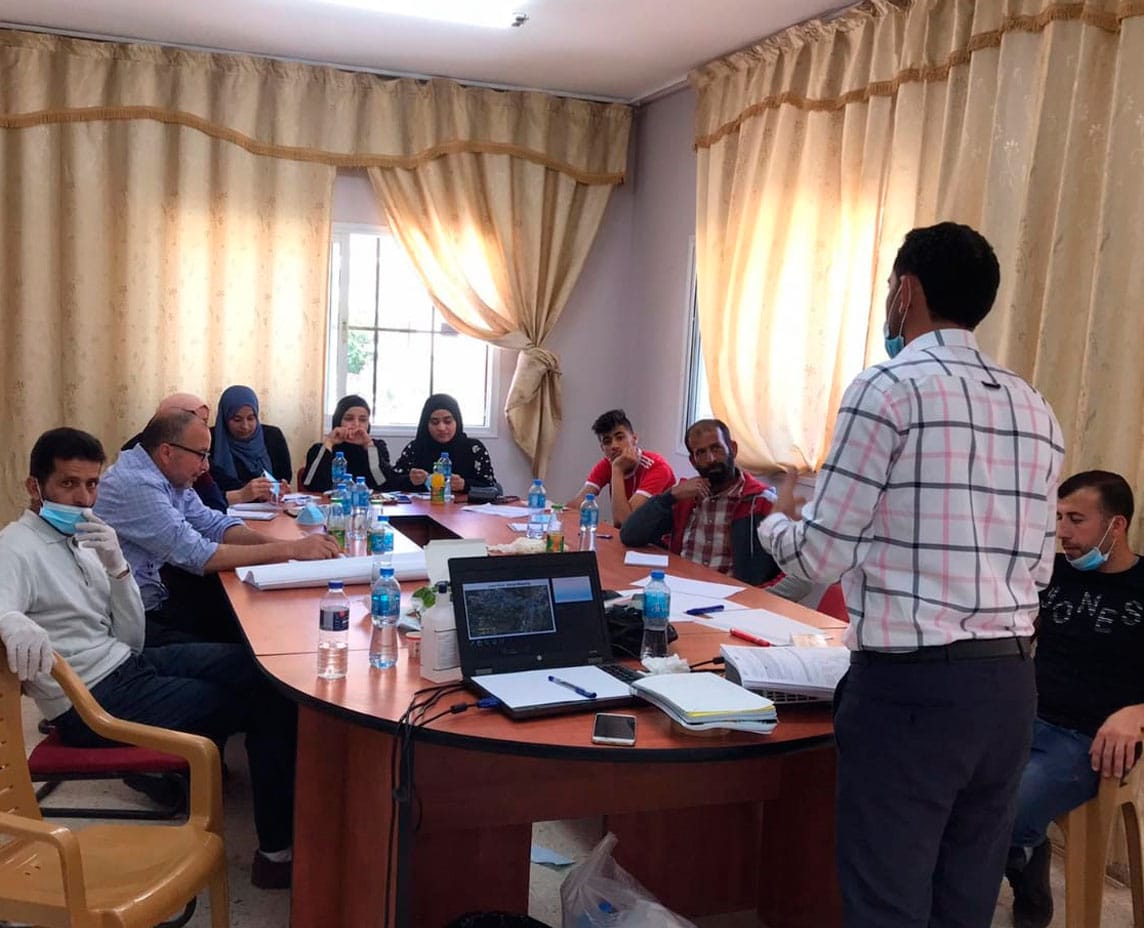Within the framework of the 2018 Agreement, “Contribute to improving the resilience of vulnerable rural communities in West Bank and Gaza to enable their access to rights in a sustainable and equitable manner“, financed by AECID and implemented with our local partners PARC and RWDS, a training on “Disaster Risk Reduction” took place last June 3 in Talfeet, in the Governorate of Nablus (West Bank).
One of the Protection Committees established by the Program was trained in the use of a specific tool in risk analysis, through research with community participation (PVCA).
The 15 participants (members of the local council, farmers and women’s cooperatives, young people and volunteers) were trained by experts in the subject for two days as how, through a correct diagnosis of capacities and vulnerabilities in their community, they can reduce their vulnerability to the incidence of natural disasters.
The participatory nature of the process enables men and women to act as agents of their own development, allowing them, with adequate resources and support, to solve their own problems.
This is intended to contribute to the creation of more resilient communities, and specifically,
- Strengthening the capacities of women and men and their knowledge of the risks of a disaster occurring.
- Identifying the means present at the community level that could be made available to reduce vulnerability and increase their resilience.
- Identifying priorities that will make it possible to mitigate/avoid the effects of disasters with the support of local authorities.
The Agreement encourages the formation of Community Protection and Development Committees and their training to develop and implement community-based risk reduction and climate change adaptation plans.





